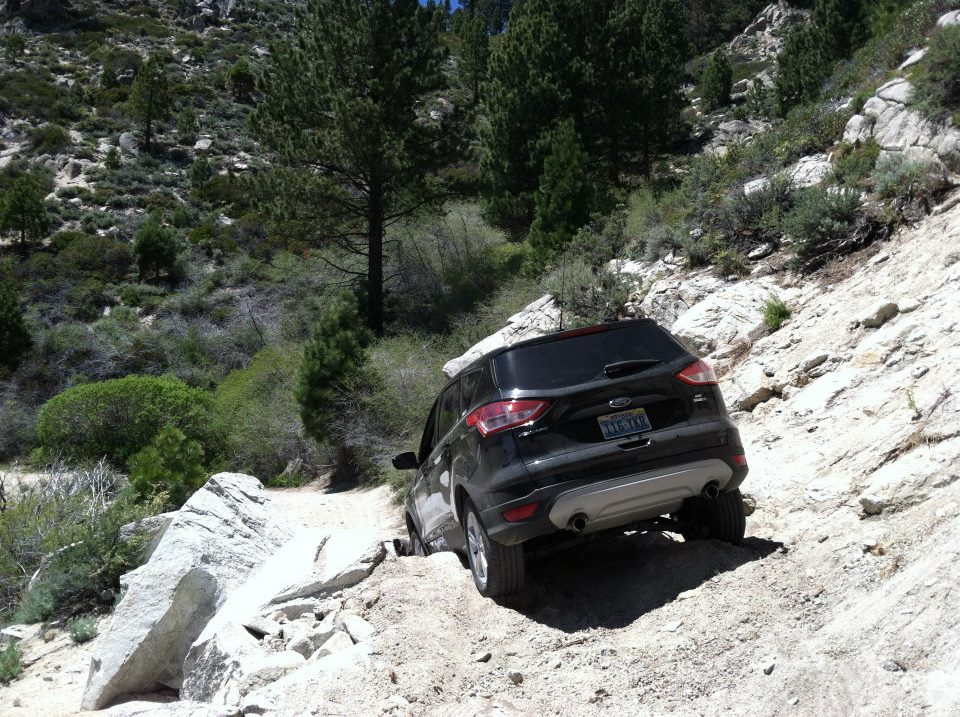In the past several months I'm seeing a ton of published material talking about why "you" should not buy one car or another, or why "you" should. But making general claims and giving advice on this basis is simply foolishness, and has no real value.
The. biggest target of course is EV's It should be obvious that EV's in general and specific EV's are designed to fill a customer's specific needs. If you have different needs, then it should be obvious that that vehicle was not made with you in mind, and why in the world would you publicly pronounce, "Hey, that car is useless to me!" Who gives a shit? Unless you have a place (typically a garage) where you can conveniently charge your EV over night, or alternatively, have a charger located conveniently for you (maybe where you work) and are willing to waste a bit of time there every couple days, then an EV Ain't for you. And let'w be completely candid here about Biden's fatuous declaration that ICE vehicles will no longer be available after 2030. The only thing that is assured is that Biden himself will have been planted by that time; but you will damn sure be able to buy an ICE car.
If you NEED a pickup truck for your business and you haul around a lot heavy stuff all day long, the Cyber Truck is probably not your choice. It has the power and payload you need, but accessing the bed from the side would be problematic, and small contractors need that ability. If you tow heavy loads long distances, again, maybe not for you. It will tow like hell - better than a Diesel - but the range is cut in half. The towing capacity of the C-T is intended for the person or family has something big and heavy that they tow occasionally. They take their boat to the lake and back once a year, or they tow their RV around the country once or twice a year. If this doesn't work for you, then get something else, and STFU about the Cyber Truck. Do you complain about ballet slippers that don't fit? No. They are not intended for you.
What about longevity in cars? Should you buy a Toyota or a Honda because it will last 10-12 years with no major problems? Maybe. But I (my wife, actually) only keep my cars for 3-4 years, and I don't really give a fuck what happens to them after I sell them. And because I don't buy that Camry or Accord, I don't get as much in trade when I sell my 4-year-old car, but I paid less for it at the outset, so so what?
I personally buy used cars with 30-40 thousand miles on them. I check sources like Consumer Reports to see what the problem areas are for that car, and before I close the deal I satisfy myself that any known issues are addressed. For example, I just bought a Dodge Journey, which has its battery positioned in a very awkward place, resulting in up to $500 to replace the battery. So I had the dealer provide me with a new battery as part of the deal. But again, I don't need that Journey to last 120,000 miles because it will be far off in my rear-view mirror by the time the odometer reaches that level. I will sell it at about 80 thousand miles.
I'm seeing regular articles now about how the "average" household cannot afford to buy a "typical" new car, the average price of which seems to have crept over $50 grand these days. But for a typical working class family that MUST buy a new car, there are tons of them in the high 20's and low 30's. Cars with hundred thousand mile factory warranties. Same for pickup trucks. People look at the sticker prices of these loaded up pickups and whine that the average cost for an F-150 is nearly 70 grand. Who cares? If you want a full-size pickup, look around. You can find one for forty. Maybe even buy a USED ONE! They do last forever, you know.
Parenthetically, my preferred type of vehicle - an extended cab, mid-sized pickup - has apparently been legislated out of existence. Maybe you can get one in a Tacoma, and they used to make the Colorado/Canyon that way, but no more. I suspect it might have something to do with their being compatible with kids' car seats. Regardless, a pickup with a six-foot bed and additional storage behind the seats that is protected from the elements (e.g., groceries) seems logical as hell to me, but the car buying public seems to have turned its back on them. It's the perfect vehicle for a golf venture.
When I read stories about houses and rentals that are becoming too expensive for Real People to afford them, there is probably some validity to that, but for vehicles, you can always find something in your budget that you can use.



